For most of us, Econ 101 was the last time we had to put any serious thought into global macroeconomic issues. But over the past decade, from Brexit to inflation to tariffs, those issues have crashed into the mainstream like a Brinks truck. It can be overwhelming, but luckily there are folks who never stopped thinking about dense economic issues, and many of those great minds have written books that turn the machinations of international economies from impenetrable to transparent. These are a few of our favorites.
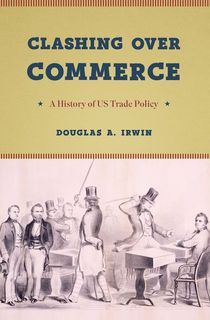
Clashing Over Commerce
In Clashing Over Commerce, Dartmouth professor Douglas A. Irwin undertakes nothing short of a complete economic history of the United States, with a particular eye towards international trade. From the aftermath of the American Revolution to Thomas Jefferson’s complete embargo on all foreign trade to the chaos of the Civil War and through the Gilded Age and up to the present day, Irwin’s book concerns itself with the American economic fortunes that have defined decades and centuries.
At the heart of Irwin’s study of just how much small-scale economics can bear large-scale political weight is a question that still plagues the airwaves today. Should the United States be more inclined to open trade with other nations, or should we favor U.S. industries and limit outside trade?
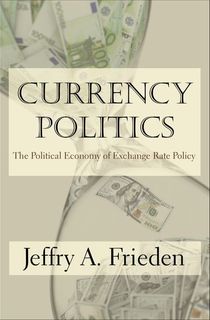
Currency Politics
What’s the most important number in political economics? Arguments are surely conducted on similar, if not identical, questions in universities all over the world. While there’s surely not one answer, Jeffry A. Frieden makes a solid case for the exchange rate as the number that tells you the most about a country’s economy on the global scale.
In Currency Politics, Frieden, Stanfield Professor of International Peace at Harvard University and chair of that university's Department of Government, breaks down the currency preferences of political figures, movements, and even whole governments into a narrative style that’s easy for anyone to digest.
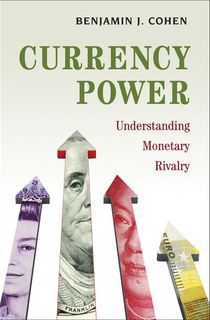
Currency Power
Not to be (but bound to be, sorry readers) confused with Jeffry A. Frieden’s highly recommended book Currency Politics, Benjamin J. Cohen’s Currency Power takes a broader view of international monetary exchange by analyzing what Princeton University Press calls “the state of play among today’s top currencies”.
Pessimistic readers will be happy to learn that Cohen’s book is also a hard-line treatise against the supposed decline of the American Greenback as an indispensable part of a small family of major international currencies for a long time to come. But this is far from a simple love letter to the dollar bill: Cohen’s large-scale political scholarship is thorough.
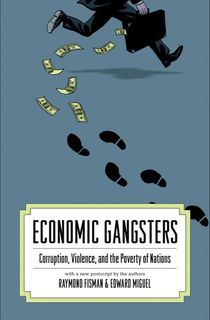
Economic Gangsters
A real treat for the true crime enthusiast, Economic Gangsters works around a centerpiece of small-scale, almost personal stories whose anti-heroes find their small, unique, and surprisingly profitable ways to scam the system. It’s difficult to put down the anecdotes of crooked diplomats, warlords, small-time smugglers, and stock-manipulating dictators, especially given authors Fishman and Miguel’s commentary, in which they don’t just explore the motives behind what they deem economic gangsterism: they offer insights and possible solutions to make similar exploitations impossible (and more importantly, unnecessary) in the future.
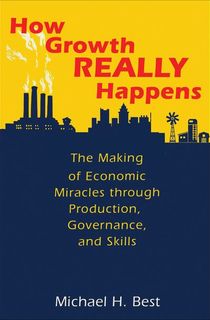
How Growth Really Happens
If you’re looking for a no-nonsense argument from an economic personality who wears a number of different hats, you couldn’t do much better than Michael H. Best’s How Growth Really Happens, which forms his argument around the three pillars of good governance, production, and skill-building. From his early day as the son of a labor organizer to his professional career as an academic and industrial consultant, Best has seen infrastructure at each of its many stages of being throughout his life.
His most important conclusion? Probably that various economic “miracles”, from post-WWII America to the Celtic Tiger and beyond, were primarily the result of large-scale investments by governments in the infrastructure of their cities, factories and roads.
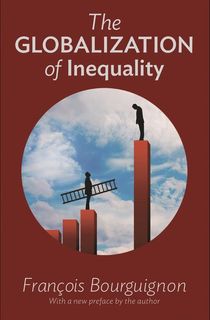
The Globalization of Inequality
Noted economist Francois Bourguignon’s work attempts to reconcile two of the most paradoxical facts in global sociology and economics. How can the global economy simultaneously create so much wealth for individuals in “emerging” economies like Brazil, China, India and others, while simultaneously contributing to a culture that creates more and more inequality within those economies than ever before?
Are these inequalities the result of factors within each individual nation, or are they part of a much larger trend toward unregulated globalization? Can our globalized economy support traditional redistribution efforts Bourguignon ultimately argues for governments to play a more active role in passing legislation to address the inequality arising from growth in emerging economies.
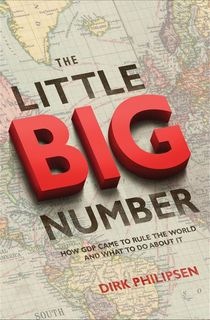
The Little Big Number
In just a few short decades since it was pulled from economic obscurity to the front pages, the Gross Domestic Product has become the most important metric when considering the “status” of a nation. In his history of this tricky little number, Dirk Phillipsen argues that we’ve gone from treating the GDP less like the obscure stat it is and more like an indicator of faith for governments, credit agencies and the economic world at large. GDP, Philipsen argues, is a battering ram of a statistic that favors immediate output over real growth.
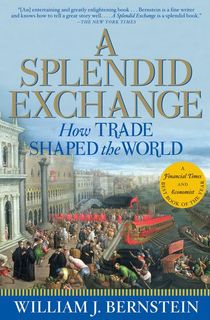
A Splendid Exchange
Another work of sweeping historical scale, William J. Bernstein’s A Splendid Exchange takes the idea of international commerce back to the days of Sumer, Akkad, and the first Mesopotamian metropolises. From these early deals for cedar, gold, beer and other essential goods, Bernstein traces the ever-present need for goods from afar and how that need has impacted global politics since long before any modern disagreements between so-called developed nations.

Alternatives to Economic Globalization
Perhaps the most overtly reformist book on this list, Alternatives to Economic Globalization is a look at how economies all over the world might be able to forge small-scale, sustainable and ecologically and socially just alternatives to the current status quo of corporatized globalization favoring a few companies over the millions of workers who produce, package, and handle the products that represent billions in profits for those companies. Don’t be fooled into thinking that this book is a pie-in-the-sky fantasy—it includes chapters on media literacy, global politics and what regular folks can do to help change what Cavanagh contends is a deeply unjust paradigm.
This post is sponsored by Open Road Media. Thank you for supporting our partners, who make it possible for The Archive to continue publishing the history stories you love.
Featured image: Jason Leung / Unsplash
